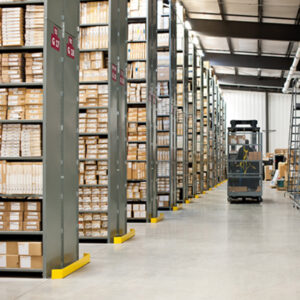 Rochester Electronics discusses why it is vital to purchase components from AS6496 compliant authorized sources.
Rochester Electronics discusses why it is vital to purchase components from AS6496 compliant authorized sources.
As technology evolves and new semiconductor products increase in demand, the manufacturing volume increases. Naturally, older products are phased out. This is the obsolescence phase of the semiconductor lifecycle.
When an original component manufacturer chooses to discontinue a product, it typically offers an end-of-life purchase, better known as a last-time-buy. Customers can not necessarily fund these purchases or buy enough, nor do they have the storage facilities available to support future requirements.
Most industries will face component obsolescence at some point and with it comes a wide range of challenges and risks. While machine downtime and lost revenue are high on that list, health and public safety rise to the top.
Component obsolescence management becomes a critical factor in high-reliability industries such as medical, defense, energy, transportation, industrial and civil aviation. This practice allows for businesses to safely prepare for end of life. Companies not prepared become vulnerable to counterfeits as well as quality and reliability issues. Even for those companies who proactively prepare, long-term component storage remains a problem.
There is a common misconception that once the original manufacturer stops producing a component, that unauthorized sources are the only recourse. This is not true. The risk-free option of an authorized after-market supplier such as Rochester Electronics, should always be the first choice.
The risks of counterfeit and poor-quality components from unauthorized sources represent a significant risk to production yield and mean time between failure rates (MTBR) in the field. Inferior or substandard ‘testing’ by unauthorized third parties provides a false veneer of confidence that authenticity can be tested. In reality, this testing is visual, an x-ray or a poor partial copy of the original manufacturer’s test processes. Full tri-temp testing can rarely be offered and the risk of commercial grade components being re-marked as industrial, automotive or military parts has never been more real.
There are also documented quality problems related to foreign chemicals. Cleaning chemicals used to recover, wash and re-mark used components, slowly migrate into the products, shorting and corroding bond wires and pads alike. Superficial testing will not be guaranteed to find these faults. Recovered components may not only pass these tests, but also survive for a period in-service. However, the ultimate failures will destroy MTBR figures, and result in reduced reliability and damaged reputations.
Buying from an authorized source who partners with the original component manufacturer eliminates these risks.
Fully authorized distributors, like Rochester Electronics, identify themselves as compliant with the SAE aerospace standard, AS6496. Simply stated, they are authorized by the original component manufacturer providing traceable and guaranteed products with no quality or reliability testing required because the parts are sourced from the original component manufacturer.
Those providers who are not, may market themselves as AS6171/4 compliant. This source, though better than no compliance at all, follows standardized inspections and test procedures with minimum training and certification requirements to detect suspect or counterfeit components. This is an indication the parts are not sourced to the supplier from the original component manufacturer but have passed testing to minimize, not eliminate, risk.
The only way to eliminate these risks is to purchase from a fully authorized source who is AS6496 compliant.
